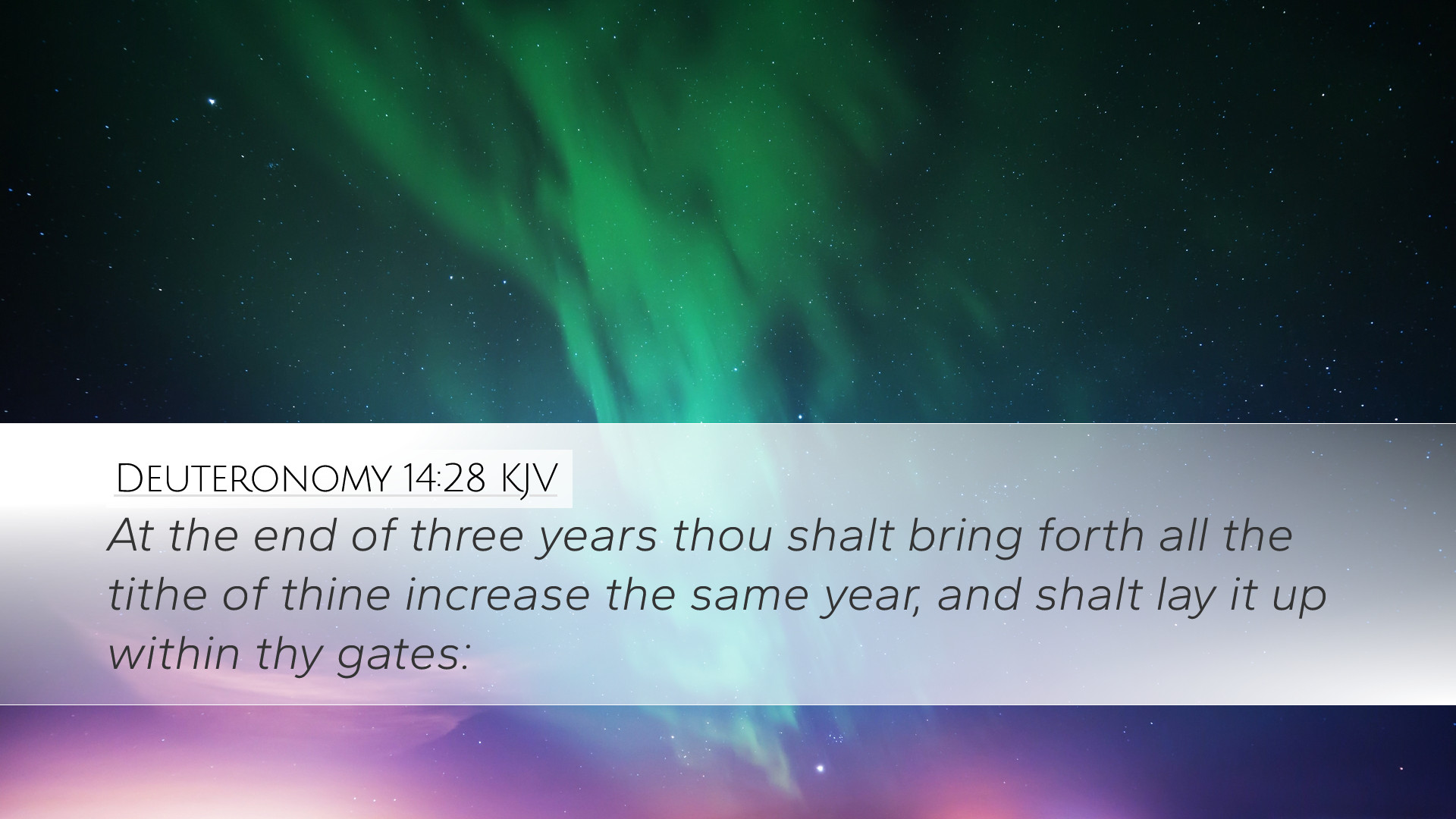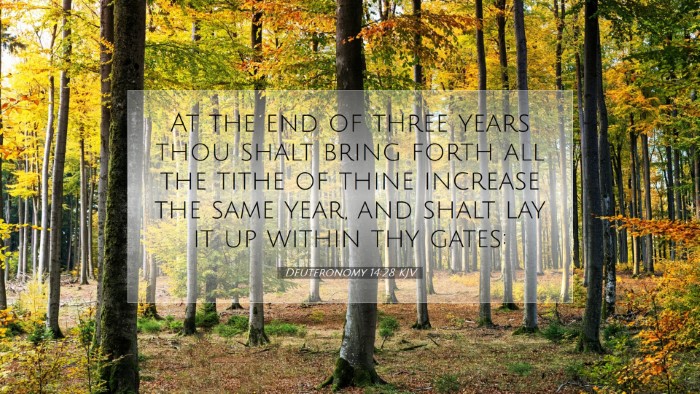Commentary on Deuteronomy 14:28
Verse Text: "At the end of every three years thou shalt bring forth all the tithe of thine increase the same year, and shalt lay it up within thy gates."
Introduction
Deuteronomy 14:28 addresses the principle of tithing within the community of Israel, emphasizing the importance of supporting the poor and the Levites. This verse forms part of the larger framework of covenantal law that guides the Israelites in their relationship with God and with each other. The practice of tithing is rooted in gratitude and obedience and serves practical and theological purposes.
Theological Implications
Tithing—especially in the context of Israelite society—was more than merely a financial obligation; it was appointed by God as a means through which the community would express their devotion, sustain their religious leaders, and care for those in need.
-
Obedience to God's Command: Matthew Henry comments on the importance of adhering to divine instructions, suggesting that the cyclical nature of the tithe reflects Israel’s recognition of God as the ultimate provider.
-
Promotion of Community Welfare: Albert Barnes emphasizes that the designated tithe was specifically for the support of the Levites and the poor, ensuring that the spiritual leaders were taken care of while simultaneously bolstering communal ties.
-
A Reminder of God’s Provisions: Adam Clarke notes that this allocation serves as an ongoing reminder for the Israelites of their dependence on God’s blessings, pointing to the stewardship required in managing resources.
Cultural Context
Understanding the cultural and historical context of Deuteronomy enhances our grasp of the scripture. The Israelites lived in a close-knit agrarian society where sharing resources was crucial for survival. The instructions in this verse were, therefore, not arbitrary but rooted in the socio-economic realities of the time.
-
Yearly Cycle and Agricultural Patterns: The three-year cycle of tithing corresponds to the agricultural seasons, allowing the Israelites to bring their best produce as an act of worship.
-
Levites’ Role in Society: The Levites, selected as priests serving the holy temple, were dependent on the generosity of the people for their sustenance since they had no territorial inheritance.
Practical Applications for Today
The principles extracted from this verse remain relevant for modern believers, especially in how communities handle resources.
-
Generosity: The act of giving is fundamentally an expression of faith and trust in God's continued provision.
-
Caring for the Needy: Just as in ancient Israel, churches today are reminded to allocate funds that directly support impoverished members of the community, honoring God's command to care for “the stranger, the fatherless, and the widow” (Deuteronomy 14:29).
-
Sustaining Spiritual Leaders: Pastoral support is critical in maintaining a healthy church community. The practice of tithing can be seen as a commitment to ensuring that spiritual leaders can devote themselves fully to prayer and ministry.
Conclusion
Deuteronomy 14:28 encapsulates the core tenets of generosity, community support, and divine obedience. This scripture provides a profound insight into the responsibilities of believers toward one another and their leaders, revealing a deep-rooted theology of stewardship that is equally applicable today. By reflecting on the lessons from this verse, pastors, students, theologians, and Bible scholars can draw connections to contemporary practices of generosity and community care, ensuring that the legacy of faithful stewardship continues in modern contexts.


